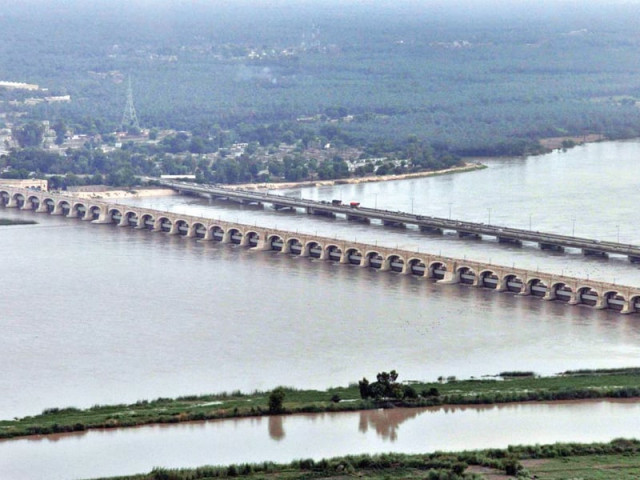Studying a river: SALU to offer postgraduate course on Sindh’s lifeline
Indus River Natural Management course for postgraduate studies to be offered soon.

A course on Indus River management has been introduced at SALU in collaboration with the University of Glasgow. The course is aimed at teaching postgraduate students about the ecosystem, environmental management and disaster management of this river. PHOTO: FILE
Such a course will be offered at the university soon, announced Salu officials at an inaugural ceremony on Monday. This will be a three-week transnational career development course for postgraduate studies, called Indus River Natural Resource Management.
“As the river supports countless lives, it also makes the communities it feeds vulnerable during floods and droughts,” said MNA Dr Syeda Nafisa Shah, while presiding over the ceremony. Along with vice-chancellor Dr Parveen Shah, representatives of University of Glasgow and others, Dr Nafisa stressed on the importance of this course.
The importance of the course
“The Indus delta has nurtured many civilisations, it is where the history emerged, it is the lifeline of Sindh,” claimed Dr Nafisa. It is the one of the largest rivers in the world and is a water source for more than 30 million acres, she said. “This is the epicentre of the country’s irrigation system.”

She said most of the country’s agriculture and fishing is dependent on this precious natural resource. Reflecting on diminishing waters of the great river, she said, “Hardly any river runs downstream of Kotri and as a result it has terribly affected the fisheries, mangroves and led to sea water intrusion and loss of fertile land.”
With a tinge of pride, Dr Nafisa proclaimed that the British Empire’s incursions into this territory were partly inspired by Indus river, adding, “The Sukkur Barrage not only transformed the ways of agriculture, it allowed a public resource to be handed over to the private domain, which laid the foundation of the market economy in Sindh.” As settlements resonate and revolve around the river belt, the history of power struggles in Sindh has taken place here, she claimed.
“This in-depth study would produce a cadre of professionals equipped with knowledge about ecosystem, heritage, conservation and environmental management in terms of natural hazards,” said Prof Peter Meadows of the University of Glasgow.
“It would certainly specialise the students about uplifting rural communities, empowering the economy of Pakistan and women development,” said Azra Meadows from the University of Glasgow, adding that all the programmes are designed to achieve the millennium development goals.
How was this course introduced?
The course has been introduced in collaboration with the University of Glasgow, Scotland, United Kingdom, British Council, Higher Education Commission, Islamabad, Heritage Foundation, Pakistan and World Wide Fund for Nature- Pakistan’s wetland programmes.
Vice-chancellor Dr Parveen called the programme a strategic partnership between the institutions. “The course would benefit everyone and would introduce development opportunities as it revolves around environmental issues,” she said.
“This programme demonstrates that there is a potential for transnational educational partnership,” Dr Nafisa concluded. “It is strategically important for the region as it will further pave ways for the preservation of our rich resources.”
Published in The Express Tribune, November 19th, 2013.



















COMMENTS
Comments are moderated and generally will be posted if they are on-topic and not abusive.
For more information, please see our Comments FAQ